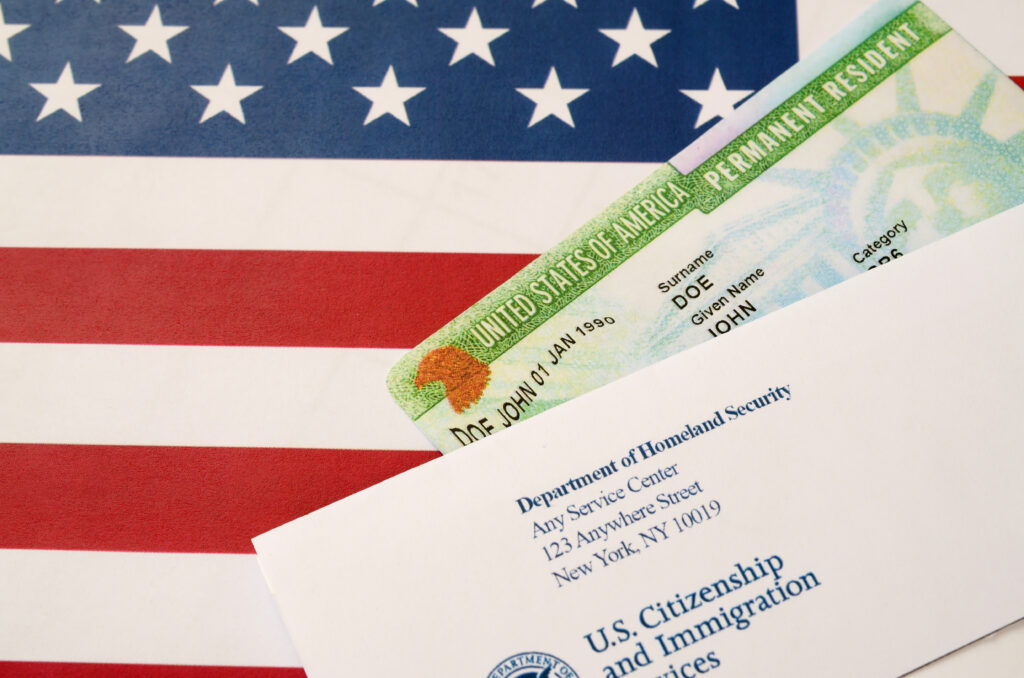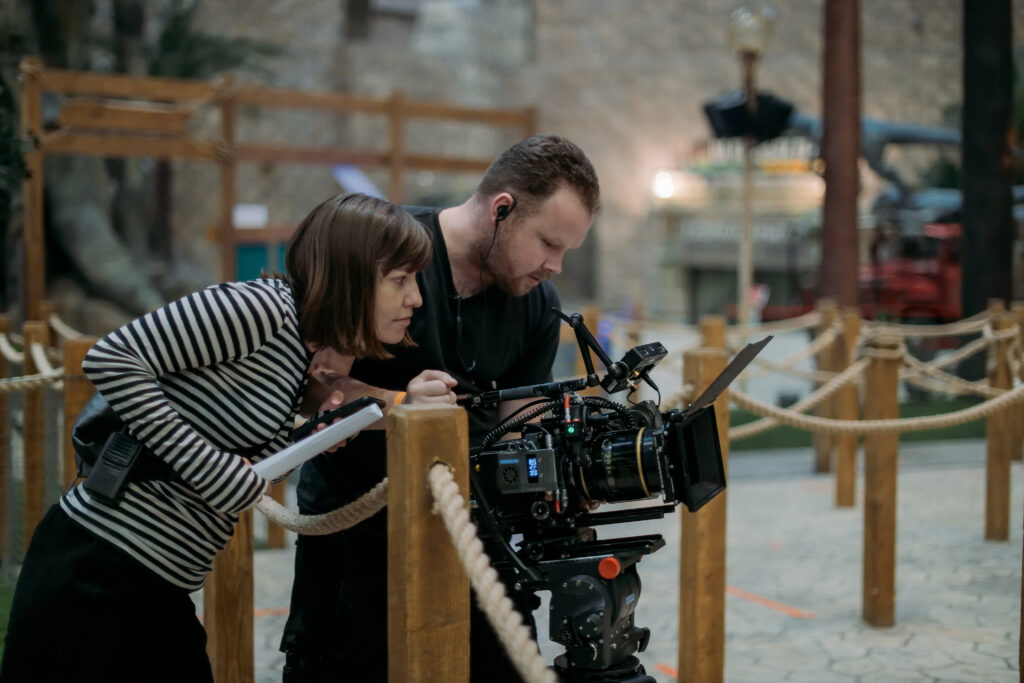Your Gateway to Working in the U.S. with Extraordinary Ability
The United States welcomes talented individuals from around the world. If you possess extraordinary ability in fields like science, arts, education, business, or athletics, or have achieved remarkable success in the film or television industry, the O-1 nonimmigrant visa might be your key to working in the U.S. This visa recognizes individuals who have reached the very top of their field, demonstrated by sustained national or international acclaim. Understanding the path to securing an O-1 visa can seem complex, but breaking it down into key elements can make the process clearer and increase your chances of success.
1. Understanding What “Extraordinary Ability” Really Means
To qualify for an O-1 visa, U.S. Citizenship and Immigration Services (USCIS) needs to see that you have “extraordinary ability.” This sounds impressive, and it is! It means you have reached a high level of expertise and are recognized nationally or internationally as one of the small percentage who have risen to the very top of your field. The specific definition varies slightly depending on your area:
- O-1A (Sciences, Education, Business, Athletics): You need to show sustained national or international acclaim. This can be demonstrated by receiving a major, internationally recognized award (like a Nobel Prize or Olympic medal). If you haven’t received such an award, you must provide evidence meeting at least three specific criteria from a list defined by USCIS. These criteria include things like receiving nationally recognized prizes, membership in associations requiring outstanding achievements, published material about you in professional publications, judging the work of others, original contributions of major significance, authorship of scholarly articles, or commanding a high salary.
- O-1B (Arts, Motion Picture/TV): For the arts, “extraordinary ability” means “distinction.” Distinction means a high level of achievement, significantly above what is ordinarily encountered. For the motion picture or television industry, it means a demonstrated record of extraordinary achievement. Like the O-1A, you can qualify by receiving a major award (like an Oscar, Emmy, Grammy, or Director’s Guild Award) or by meeting at least three specific criteria tailored to these industries, such as performing leading roles, achieving national recognition, playing a critical role for distinguished organizations, or commanding a high salary.
Understanding which category applies to you and what specific evidence is needed is a vital first step.

2. Gathering Compelling Evidence: The Foundation of Your Case
Meeting the basic definition of extraordinary ability is just the start. The strength of your O-1 application lies in the evidence you provide to prove your claim. USCIS officers meticulously review documentation, so comprehensive and well-organized evidence is crucial. Think beyond just listing your achievements; you need to show your impact and recognition.
This evidence can take many forms, depending on your field and the criteria you aim to meet. Examples include:
- Copies of awards or prizes received.
- Membership documents from exclusive organizations.
- Published articles about you or your work in major media or trade journals.
- Evidence of your participation as a judge of others’ work.
- Letters of recommendation or testimonials from recognized experts in your field detailing your original contributions.
- Copies of your own published scholarly articles.
- Contracts or pay stubs showing a high salary or significant compensation.
- Evidence of critical roles in productions or for distinguished organizations.
Simply put, the more high-quality, relevant evidence you can gather, the stronger your petition will be. It’s essential to document every claim thoroughly. Preparing a strong case often involves significant effort in collecting and presenting this proof. Feeling unsure about what evidence works best? Seeking professional guidance can make a significant difference.
Considering an O-1 visa? Ensure your evidence is compelling. Schedule a consultation with D’Alessio Law today and get $100 off your first meeting!

3. The Petitioner’s Role: Who Files for You?
Unlike some visas, you generally cannot file an O-1 petition for yourself. You need a U.S. petitioner to file Form I-129, Petition for Nonimmigrant Worker, on your behalf. The petitioner acts as your sponsor for the visa. This petitioner can be:
- A U.S. Employer: A company or organization in the U.S. that wants to hire you for your extraordinary abilities.
- A U.S. Agent: An individual or entity authorized to act as an agent for you and potential employers. This is common for artists, athletes, or individuals who may work for multiple employers or on various projects.
- A Foreign Employer (through a U.S. Agent): Your foreign employer can also petition for you, but they must use a U.S. agent to file the petition.
The petitioner is responsible for submitting the Form I-129, all supporting evidence, and the required fees to USCIS. They must demonstrate the nature of the work you will be doing in the U.S. and how it requires someone of your extraordinary caliber. Choosing the right petitioner structure is important for your application.
4. Key Consideration: The Consultation Requirement
For most O-1 petitions, USCIS requires a written advisory opinion, often called a “consultation,” from an appropriate peer group, labor organization, or management organization in your field of expertise. This consultation confirms your extraordinary ability or achievements from the perspective of industry experts. Think of it as an expert testimonial supporting your case.
The petitioner is responsible for obtaining this consultation letter. The specific organization to consult depends on your field. For example:
- Arts: Consultations often come from relevant unions (like Actors’ Equity Association or the American Federation of Musicians) or management organizations.
- Sciences/Education/Business: Peer groups might include professional associations or societies in your specific discipline.
- Athletics: Governing bodies or players’ associations are typically consulted.
There are exceptions, such as if no appropriate peer group exists or if you can demonstrate urgency. However, providing a favorable consultation letter significantly strengthens your petition. You can find more details about this requirement on the official USCIS website.
5. Essential Steps: Filing Timelines and What Comes Next
Timing is important when filing your O-1 petition. Your U.S. petitioner cannot file the Form I-129 more than one year before you actually need your services to begin. However, to avoid delays, they should file it at least 45 days before the date your employment is set to start. Processing times can vary, so planning ahead is crucial. USCIS offers Premium Processing for an additional fee, which guarantees processing within a specific timeframe (usually 15 calendar days), although this doesn’t guarantee approval.
Once the petition (Form I-129) is approved by USCIS, what happens next depends on whether you are inside or outside the United States:
- If outside the U.S.: You will need to apply for an O-1 visa stamp at a U.S. embassy or consulate in your home country. This involves an application (usually Form DS-160), paying fees, and attending a visa interview. [External Link 2: U.S. Department of State Visa Information – https://travel.state.gov/content/travel/en/us-visas.html]
- If inside the U.S. (in valid status): You may be able to request a change of status to O-1 directly with the approved I-129 petition, allowing you to start working once the O-1 status becomes effective.
Understanding these procedural steps helps manage expectations. For a deeper dive into specific requirements, consider downloading our guide. Ready to explore the O-1 visa further? Download our comprehensive E-Book “Unlocking Extraordinary Talent: Your Guide to O-1 Visa Pre-Requirements” to get started!
Navigating the O-1 process requires careful attention to detail. Don’t let complexities hold you back from pursuing opportunities in the U.S. Have questions specific to your situation? Book a consultation with D’Alessio Law now and receive a $100 discount on your first session!

Your Path Forward
Securing an O-1 visa is a significant achievement, reflecting your dedication and extraordinary talent. By understanding the definition of extraordinary ability, gathering strong evidence, identifying the right petitioner, fulfilling the consultation requirement, and navigating the application process correctly, you can significantly improve your chances of success. Remember, each case is unique, and the details matter immensely.
For further insights into visa processes, check out our article on Key Factors in Family Sponsorship Cases. The journey requires careful preparation, but the opportunity to work and share your talents in the United States can be incredibly rewarding.



